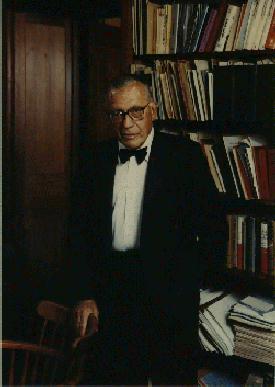
Cesario Estrada Chavez was an American labor leader and civil rights activist. Along with Dolores Huerta, he co-founded the National Farm Workers Association (NFWA), which later merged with the Agricultural Workers Organizing Committee (AWOC) to become the United Farm Workers (UFW) labor union. Ideologically, his worldview combined left-wing politics with Catholic social teachings. For his farm workers movement, Chavez adopted many of the same non-violent tactics and philosophies that were fundamental to both the Gandhi and the Martin Luther King civil-rights movements.

The United Farm Workers of America, or more commonly just United Farm Workers (UFW), is a labor union for farmworkers in the United States. It originated from the merger of two workers' rights organizations, the National Farm Workers Association (NFWA) led by César Chávez and Dolores Huerta and the Agricultural Workers Organizing Committee (AWOC) led by organizer Larry Itliong. They allied and transformed from workers' rights organizations into a union as a result of a series of strikes in 1965, when the Filipino American and Mexican American farmworkers of the AWOC in Delano, California, initiated a grape strike, and the NFWA went on strike in support. As a result of the commonality in goals and methods, the NFWA and the AWOC formed the United Farm Workers Organizing Committee on August 22, 1966. This organization was accepted into the AFL–CIO in 1972 and changed its name to the United Farm Workers Union.

John Thomas Dunlop was an American administrator, labor economist, and educator. Dunlop was the United States Secretary of Labor between 1975 and 1976 under President Gerald Ford. He was Director of the United States Cost of Living Council from 1973 to 1974, Chairman of the United States Commission on the Future of Worker-Management Relations from 1993 to 1995, which produced the Dunlop Report in 1994. He was also arbitrator and impartial chairman of various United States labor-management committees, and a member of numerous government boards on industrial relations disputes and economic stabilization.

The Bracero Program was a U.S. Government-sponsored program that imported Mexican farm and railroad workers into the United States between the years 1942 and 1964.
Obreros Unidos (1966–1971) was an independent agricultural labor union founded in Wisconsin in 1966 by Mexican American civil rights activists Jesus Salas, Francisco Rodriguez and many more, originally Texas-based farm workers from the small town of Crystal City. The union took root after a march from Wautoma, Wisconsin, to Madison, Wisconsin that state's capitol to protest the working conditions of the thousands of annual Mexican-American migrant workers who traveled from Texas to Wisconsin each year. This protest march was inspired by the similar march of César Chávez' United Farm Workers (UFW) in California earlier that spring, and the Texas Farmworker march on Austin, Texas of 1966. Obreros Unidos engaged in its first labor action by seeking to organize migrant potato harvest and processing workers in the town of Almond, WI, and received support from the AFL-CIO, Cesar Chavez, and other labor unions.

Baldemar Velásquez is an American labor union activist. He co-founded and is president of the Farm Labor Organizing Committee, AFL-CIO. He was named a MacArthur Fellow in 1989, and awarded the Order of the Aztec Eagle in 1994, the highest honor Mexico can bestow on a non-citizen.

Philip Villamin Vera Cruz was a Filipino American labor leader and farmworker. He helped found the Agricultural Workers Organizing Committee (AWOC), which later merged with the National Farm Workers Association (NFWA) to become the United Farm Workers (UFW). As the union's long-time second vice president, he worked to improve the working conditions of migrant workers.

The Delano grape strike was a labor strike organized by the Agricultural Workers Organizing Committee (AWOC), a predominantly Filipino and AFL-CIO-sponsored labor organization, against table grape growers in Delano, California to fight against the exploitation of farm workers. The strike began on September 8, 1965, and one week later, the predominantly Mexican National Farmworkers Association (NFWA) joined the cause. In August 1966, the AWOC and the NFWA merged to create the United Farm Workers (UFW) Organizing Committee.
A comprehensive campaign is labor union organizing or a collective bargaining campaign with a heavy focus on research, the use of community coalition-building, publicity and public pressure, political and regulatory pressure, and economic and legal pressure in addition to traditional organizing tactics.

A farmworker, farmhand or agricultural worker is someone employed for labor in agriculture. In labor law, the term "farmworker" is sometimes used more narrowly, applying only to a hired worker involved in agricultural production, including harvesting, but not to a worker in other on-farm jobs, such as picking fruit.

The Mount Olive Pickle Company is an American food processing company located in Mount Olive, North Carolina. The company's primary product is pickled cucumbers, but it is also a large supplier of pepper, mixed pickle, relish, and other pickled products. Mt. Olive is the largest independent pickle company in the United States and the top-selling pickle brand in the Southeastern United States, where its market share approaches 70 percent.

The Hardin County onion pickers strike was a strike by agricultural workers in Hardin County, Ohio, in 1934. Led by the Agricultural Workers Union, Local 19724, the strike began on June 20, two days after the trade union formed. After the kidnapping and beating of the union's leader and the intervention of the Ohio National Guard on behalf of the growers, the strike ended in October with a partial victory for the union. Some growers met the union's demand for a 35-cents-an-hour minimum wage, but the majority did not.

Eliseo Vasquez Medina is a Mexican-American labor union activist and leader, and advocate for immigration reform in the United States. From 1973 to 1978, he was a board member of the United Farm Workers. He is currently secretary-treasurer of the Service Employees International Union. He was previously an international executive vice president, the first Mexican American to serve on the union's executive board. Medina announced his resignation as an SEIU executive vice president effective October 1, 2013.

The Salad Bowl strike was a series of strikes, mass pickets, boycotts and secondary boycotts that began on August 23, 1970 and led to the largest farm worker strike in U.S. history. The strike was led by the United Farm Workers against the International Brotherhood of Teamsters. The Salad Bowl strike was only in part a jurisdictional strike, for many of the actions taken during the event were not strikes. The strike led directly to the passage of the California Agricultural Labor Relations Act in 1975.

Pineros y Campesinos Unidos del Noroeste, more commonly known by the acronym PCUN, is the largest Latino union in the U.S. state of Oregon. PCUN is located in Woodburn. According to the Statesman Journal, the meetings that led to the formation of PCUN were held at Colegio Cesar Chavez, the nation's first fully accredited and independent Latino college. PCUN was founded in 1977 by Cipriano Ferrel, who graduated from Colegio Cesar Chavez and worked closely with Cesar Chavez himself. Ferrel was motivated to create the organization after an increase in immigration raids in Oregon. PCUN has organized the creation of migrant housing and farmworker housing. Cipriano Ferrel worked closely with Cesar Chavez.
The Cannery and Agricultural Workers Industrial Union (CAWIU) was a Communist-aligned union active in California in the early 1930s. Organizers provided support to workers in California's fields and canning industry. The Cannery and Agricultural Workers Industrial Union (CAWIU) dated back to 1929 with the formation of the Trade Union Unity League (TUUL). With industrialization and the advent of the factories, labor started migrating into the urban space. An influx of immigrant workers contributed to the environment favorable to big business by increasing the supply of unskilled labor lost to the urban factories. The demand for labor spurred the growers to look to seasonal migrant workers as a viable labor source. Corporations began to look at profits and started to marginalize its workers by providing sub-par wages and working conditions to their seasonal workers. The formation of the Cannery and Agricultural Workers Industrial Union addressed and represented the civil rights of the migrant workers. Ultimately the CAWIU lost the battle, overwhelmed by the combined alliance of growers and the Mexican and state governments. The eventual abandonment of the Trade Union Unity League led to the dissolution of the CAWIU, which later emerged as the United Cannery, Agricultural, Packing, and Allied Workers of America (UCAPAWA).
The Imperial Valley lettuce strike of 1930 was a strike of workers against lettuce growers of California's Imperial Valley
The North Carolina Growers Association (NCGA) is a growers' cooperative based in the United States state of North Carolina that coordinates seasonal farm workers by utilizing the guest worker program.
El Malcriado was a Chicano/a labor newspaper that ran between 1964 and 1976. It was established by the Chicano labor leader Cesar Chavez as the unofficial newspaper of the United Farm Workers during the Chicano/a Movement of the 1960s and early 1970s. Published in both English and Spanish editions, El Malcriado provided a forum for migrant workers to criticize working conditions and served as a way to organize the collective voice of Mexican American farmworkers. The newspaper's contents ranged from articles on union activities, coverage of labor issues, political commentary, cartoons, satire, and artwork. It is an example of ethnic press or alternative media that developed from political movements and immigrant communities within the United States to challenge existing power structures and gain political leverage.
María Elena Lucas is a Chicana migrant farm worker, labor rights activist, poet, diarist, storyteller and playwright. She founded the United Farm Workers' Service Center in the North American Midwest, organizing day care, a health clinic and other services. She was vice president of the Farm Labor Organizing Committee (FLOC). Her activism was curtailed when she and her oldest son were poisoned by pesticides.














